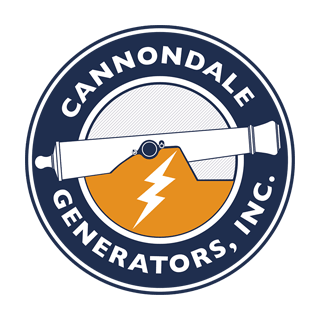
How Businesses Can Avoid Downtime with Commercial Generators
The Cost of Downtime for Businesses
For any business, unexpected power outages can lead to significant losses. Whether you operate a retail store, a restaurant, or an office-based company, downtime translates to lost revenue, decreased productivity, and potential damage to your reputation. A single hour of downtime can cost small businesses thousands of dollars, while larger enterprises may lose millions. That’s why having a commercial backup power solution is critical to ensuring business continuity and operational stability.
Why Businesses Need Commercial Generators
Investing in a commercial generator installation is a proactive approach to safeguarding your business against unexpected power failures. Unlike portable generators, commercial-grade standby generators provide seamless power backup, automatically restoring electricity within seconds of an outage. Here’s why every business should consider installing a commercial generator:
1. Ensure Uninterrupted Operations
Power outages can halt business activities, disrupting communication, sales transactions, and essential services. A commercial generator ensures your business continues running smoothly, even during severe storms, grid failures, or emergencies.
2. Protect Perishable Goods
For restaurants, grocery stores, and businesses relying on refrigeration, a power outage can lead to spoilage. A backup generator keeps refrigeration and freezers operational, preventing losses and maintaining food safety compliance.
3. Maintain Security Systems
Security systems, including alarms, cameras, and access controls, depend on electricity. A power failure can leave your business vulnerable to theft, vandalism, and security breaches. A commercial generator ensures continued protection by keeping these systems online.
4. Safeguard Critical Data and Equipment
Many businesses rely on servers, computers, and other electronic equipment. A sudden power outage can lead to data loss, hardware damage, and costly downtime. A commercial backup power solution provides a steady and reliable power source to prevent disruptions and protect valuable digital assets.
5. Enhance Customer Trust and Employee Productivity
Service disruptions can drive customers to competitors, while employees struggle to stay productive during outages. A standby generator reassures customers and employees that your business is prepared for emergencies, fostering trust and reliability.
Choosing the Right Commercial Generator for Your Business
Not all commercial generators are the same. Selecting the right one depends on your business’s specific needs. Key factors to consider include:
1. Power Capacity
Choose a generator with sufficient power to support essential systems like lighting, HVAC, security, and IT infrastructure.
2. Fuel Type
Generators run on diesel, natural gas, or propane, each with its own advantages:
- Diesel: Durable and efficient but requires fuel storage.
- Natural Gas: Connects directly to municipal lines, eliminating the need for fuel storage.
- Propane: Clean-burning with a long shelf life.
3. Automatic Transfer Switch (ATS)
An ATS seamlessly switches power from the grid to the generator during an outage, preventing downtime and ensuring uninterrupted operation.
4. Installation Location
The generator should be installed in a safe, accessible location, away from flooding risks and with proper ventilation for safety compliance.
5. Noise Levels and Regulations
Check local noise ordinances and compliance standards when selecting a generator. Many modern commercial generators are designed to operate quietly.
Commercial Generator Installation: What to Expect
If you’re considering a commercial generator installation, working with a professional installer is crucial. The process typically involves:
Step 1: Site Assessment
A technician evaluates your power needs, available space, and regulatory requirements to recommend the best generator type and location.
Step 2: Selecting the Right Generator
Based on the assessment, you’ll choose a generator that meets your business’s energy demands and budget.
Step 3: Permitting and Compliance
Commercial generator installations require permits and must comply with local building codes. Your installer will handle the paperwork and ensure all regulations are met.
Step 4: Installation and Wiring
The generator is securely installed on a concrete pad and connected to your electrical system. If needed, a fuel supply line (for natural gas or propane) is set up.
Step 5: Testing and Maintenance Plan
Once installed, the generator is tested for proper functionality. A maintenance plan is also recommended to keep your system running efficiently.
Maintenance Tips for Long-Term Reliability
Routine maintenance is essential to ensure your generator performs optimally during an emergency. Key maintenance tasks include:
- Regular system testing: Run the generator periodically to confirm functionality.
- Checking fluid levels: Monitor oil, coolant, and fuel levels.
- Inspecting batteries and connections: Ensure batteries are charged and connections are secure.
- Scheduling professional servicing: Have a certified technician perform annual inspections and servicing.
Final Thoughts
Unexpected power outages can severely impact businesses, leading to financial losses, security risks, and customer dissatisfaction. Investing in a commercial backup power solution ensures your business remains operational, secure, and resilient in the face of disruptions.
If you’re looking for expert commercial generator installation, Cannondale Generators offers professional assessment, installation, and maintenance services. Contact us today to schedule a consultation and keep your operations running without interruption.
